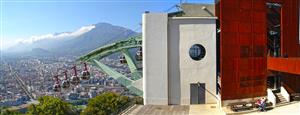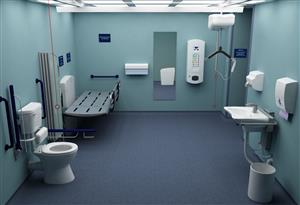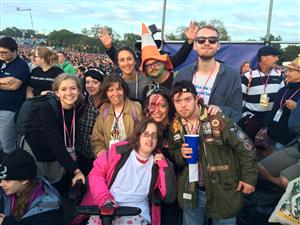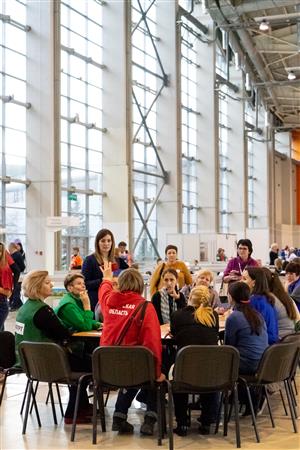Search Results
Search
Filter results
Advanced Filters
Your search returned 314 Solutions
-
Using technology in the classroom to support all students
The focus of the project is to increase knowledge among students, teachers, and other involved professionals on how the use of innovative technology in the classroom can facilitate participation and performance. 215 students with disabilities also received individual support. An accompanying study confirmed significant improvements.
Swedish Agency for Disability Coordination, Sweden -

The Accessibility Strategy of Grenoble
In 2015 Grenoble developed a nine-year plan to make the city fully accessible – including all areas of public institutions, schools, sports and leisure facilities as well as the entire public transport system. The Accessibility Agenda is based on Universal Design principles and aims to cover all 49 communities by 2024.
Grenoble-Alpes Métropole Community, France – Municipality of Grenoble – L’Agenda d’accessibilité programmée, France -

A Changing Places toilet provides equipment, space and facilities (including hoist and adult-sized changing bench) for persons with disabilities who need assistance and cannot use standard accessible toilets. Changing Places toilets should be provided in addition to standard accessible toilets.
Changing Places include special equipment such as a height-adjustable changing bench and a hoist, offer adequate space in the changing area for up to two carers, and provide a centrally-placed toilet with room on either side for the carers. There are also mobile Changing Places toilets available to rent for large and small events.
Muscular Dystrophy UK, Changing Places Consortium, Accessible and spacious toilets in public places, United Kingdom -
The Atatürk Airport Istanbul was made accessible through a holistic approach: tactile surfaces added; sanitary facilities renovated; induction loop systems implemented. Strong emphasis was laid on the training of the airport employees.
The specific needs of persons with disabilities were taken into consideration in order to make the Atatürk Airport accessible. A holistic approach was chosen, not limiting itself to the transformation of the physical space but also aimed at creating awareness within the organisation as well as amongst the general public.
TAV Istanbul, Airport accessibility for everyone, Turkey -
ColorADD is a universal graphic code whose mission is to enable the colourblind to identify colours. It supports the social integration of persons with colour vision deficiency.
ColorADD transforms colour to a graphic code that indicates the colours on textiles, medicines, educational games, coatings, paint material etc. Based on three primary colours, the symbols are related to each other and the entire colour pallet graphically identified, for example, yellow and blue make green.
ColorADD Miguel Neiva & Assoc. Lda., Colour identification system for the colourblind, Portugal -
Dialogue in the Dark
Dialogue in the Dark is an experience in total darkness where visitors to the exhibitions, led by blind guides, experience a series of ordinary situations without eyesight. Between 1988 and 2012 over 7 million people have experienced Dialogue in the Dark worldwide, and over 7,000 blind candidates have found employment through it.
Dialogue Social Enterprise GmbH, Dialogue in the Dark, Germany -

Mapping the accessibility of vacation properties and itineraries
EWB is an accommodation, tour information, and booking service catering mainly to persons with physical disabilities who wish to travel in Europe. The website covers bookings in seven countries. In 2016 EWB provided services to over 7,800 persons with disabilities, including over 3,500 hours of specialised assistance.
AISM - Italian Multiple Sclerosis Society, Italy -

Teaming up persons with learning disabilities or autism for leisure activities
Stay Up Late matches each participant with a volunteer with the aim to develop an ongoing friendship. The matching process takes into account such factors as cultural tastes, gender, age, geography, and whether the individual can access public transportation. By mid of 2017, there were 85 active pairs of "Gig Buddies".
Stay Up Late, Gig Buddies Online Service, Gig Buddies, United Kingdom -

Solving social issues to increase job opportunities
In 2016, IKEA in Russia launched a joint project with the Abilympics movement to improve employment opportunities for people with disabilities. By 2020 the employment of people with disabilities in IKEA Russia has increased by 55 per cent, and new business partners have joined the Abilympics.
Ingka Group (IKEA), Abilympics Project, Russia -
Labour integration in rural areas
The Siro Group is one of the largest industrial groups in the food sector in Spain. It has implemented an Integration Policy for people with disabilities in all workplaces that exceeds the legal framework. Specifically, it has 16 factories located in rural areas with 3,724 employees. 13% of the workforce are persons with disabilities.
Cerealto Siro Foods, Labour integration in rural areas, Spain